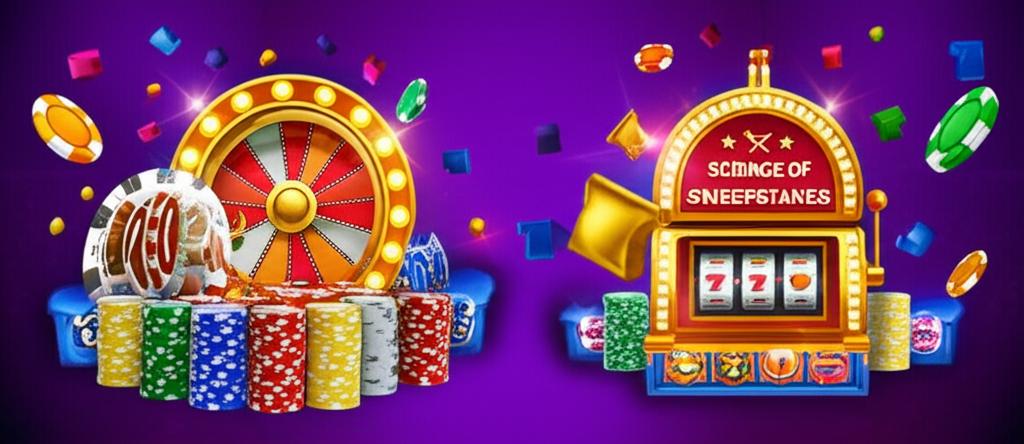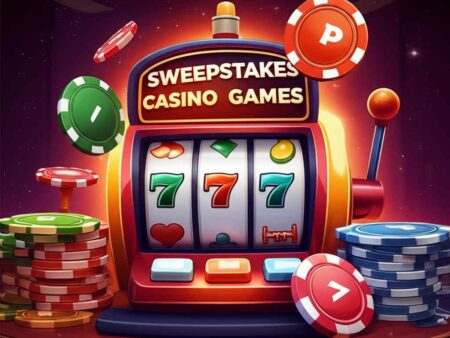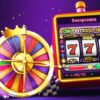Discover the truth behind sweepstakes casino games, exploring luck, probability, and the psychology that drives real outcomes.
The Science of Luck in Sweepstakes Casino Games: Is It Real?

Understanding Luck in Sweepstakes Casinos
Step into the intriguing world of sweepstakes casinos where unexpected luck and chance captivate players. In these casino games, both superstition and science intermingle, drawing you into experiences that seem as unpredictable as they are exciting.
Many players in these casino environments search for hidden patterns amid random outcomes. They perceive coincidences as signs of personal luck and rely on subtle signals in the games, reinforcing their belief in triumph and favor in sweepstakes play.
Sweepstakes games depend on random number generators (RNGs) to deliver fair results. This essential technology ensures every play is impartial and maintains trust in casino practices. For deeper insight, visit Casino RNG Fairness: Why Sweepstakes Games Are Truly Random.
Anticipation fuels excitement in these casino sessions, making every spin and card pull feel significant. The surge of optimism when facing uncertainty in games often transforms ordinary moments into memorable sweepstakes experiences for dedicated players.
The Illusion of Control
The illusion of control trickles into casino play, as players mistakenly believe personal choices influence random outcomes. Many attribute their minor rituals to increasing their luck, blending perception with the unpredictable nature of sweepstakes encounters.
Some players mesmerize over specific routines and practices, convinced that these actions tip the scales in their favor. Embracing such superstitions reinforces engagement and injects extra enjoyment into each sweepstakes session.
Psychological factors intensify the illusion of control in casino games. Near-misses trick players into believing they can affect outcomes, prompting repeated tactics and renewed hope in sweepstakes. Learn more at The Psychology of Winning at Sweepstakes Casino Games – Science View.
Experts warn that a misplaced belief in skill can obscure true probabilities. Cognitive biases lead many to misread random events and overestimate their influence, further perpetuating legends of personal fortune in the unpredictable world of casino play.
The Gambler’s Fallacy
The gambler’s fallacy represents a common misconception in casino games. Many mistakenly expect a win after consecutive losses, believing that fate will balance outcomes. Such faulty reasoning pervades many sweepstakes experiences and influences everyday play.
In sweepstakes scenarios, the gambler’s fallacy often fuels extended play. After a series of losses, players persist, mistakenly thinking that a win is overdue. However, every spin or card deal remains statistically independent, unaffected by previous outcomes.
Real-world examples reveal that persistent beliefs in due wins misguide many players. Observing continuous losses, individuals start misjudging probabilities, mistakenly seeing patterns where none exist, and thus reinforce unrealistic expectations in various casino and sweepstakes settings.
Awareness of the gambler’s fallacy is crucial for responsible play. Recognizing that each game is independent can reduce impulsive betting. Understanding these odds is essential; check How to Spot Fake Sweepstakes Casino Games and Avoid Pitfalls for expert guidance.
Dopamine and Anticipation
In the realm of casino play, anticipation stimulates a rush of dopamine, adding a neurochemical twist to every sweepstakes encounter. This brain response fuels excitement and compels players to indulge repeatedly in engaging games.
Elevated dopamine levels surge when anticipation meets uncertainty in casino activities. This surge encourages players to pursue that rewarding feeling, often confusing biochemical reactions with luck, as they dive deeper into the world of random sweepstakes experiences.
Repeated successes, though rare, trigger habitual patterns through dopamine-driven reinforcement. Players return to the allure of casino surprises, often misinterpreting a lucky streak, while the underlying science of anticipation in sweepstakes remains firmly rooted in neurobiology.
Sustained dopamine spikes promote a cycle of pursuit where players chase the elusive thrill. This biology-driven habit sometimes leads to overcommitment in casino challenges, a cycle vividly experienced by many in the realm of sweepstakes games.
Game Design and RNGs
Game design in modern sweepstakes leverages captivating graphics and soundscapes to heighten emotions during casino play. Engaging interfaces invite players to immerse themselves in exhilarating games, where sensory details amplify the feeling of impending luck.
Random number generators (RNGs) play a pivotal role in ensuring fairness throughout casino games. These algorithms produce unpredictable outcomes, protecting the integrity of sweepstakes and assuring players that every result is determined solely by unbiased technology.
Gamification tactics like leaderboards and tournaments stimulate competition among players. These social comparisons not only enhance excitement in casino challenges but also create community bonds, prompting further participation in engaging sweepstakes and interactive games.
Consistent randomness reassures players about the honesty of casino operations. Misinterpretations can lead to false claims of rigged systems, yet regulated sweepstakes uphold strict legal standards ensuring that every game outcome remains genuinely unpredictable.
Legal and Regulatory Considerations
Legal scrutiny surrounds many sweepstakes casinos as authorities examine whether these platforms mimic traditional casino practices. Lawmakers focus on ensuring fair play and transparency, while players remain drawn to the unpredictable charm of games and classic sweepstakes dynamics.
Certain states challenge the legitimacy of virtual credits, prompting debates about the nature of casino operations. Varying licensing laws complicate matters in sweepstakes, urging players and developers alike to navigate a maze of regulatory guidelines.
Regulatory pushback emerges as some attorneys general challenge certain sweepstakes practices. These legal actions, though varying by region, underscore the importance of fairness and guide both players and casino operators towards transparent, rule-abiding games.
Potential lawsuits or regulatory inquiries may reshape the future of sweepstakes platforms. Developers and players must stay informed, as legal definitions and evolving rules continuously influence how casino games and sweepstakes are experienced worldwide.
Did this guide help? Share your experience in the comments!

















